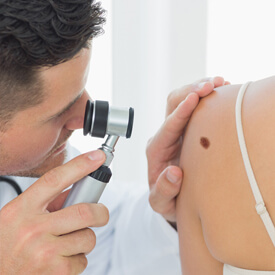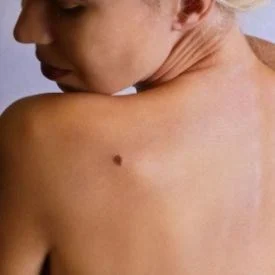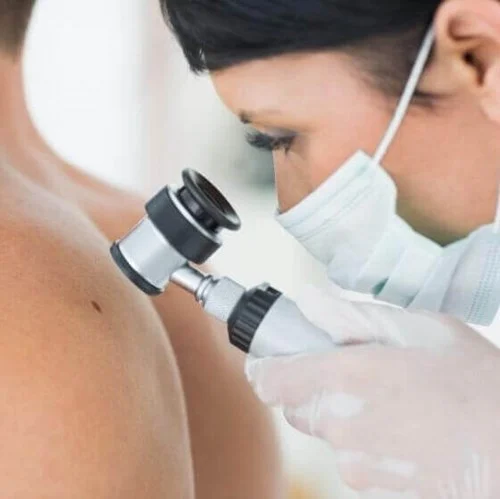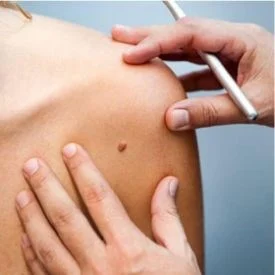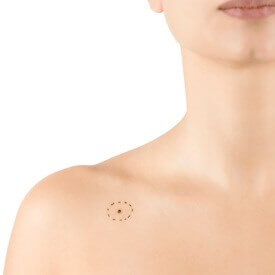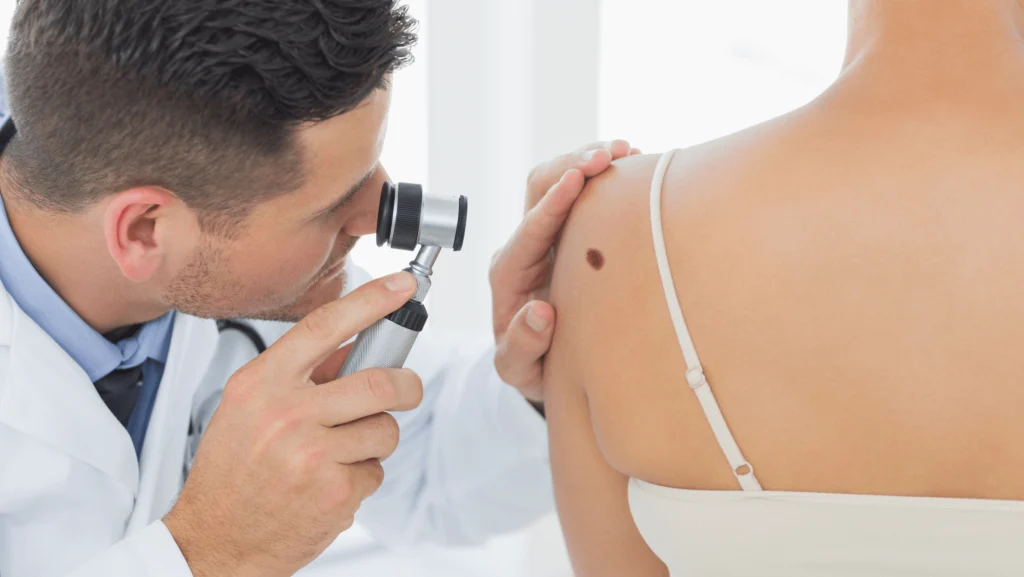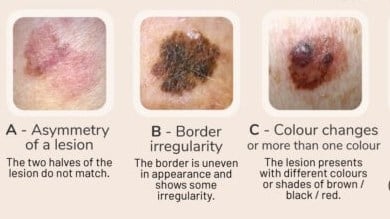What can be done to reduce the risk of developing more skin cancer if they have already had basal or squamous cell skin cancer?
Topical Chemotherapy in Fort Washington, PA
ABOUT TOPICAL CHEMOTHERAPY
While surgical treatment is considered the gold standard for skin cancer treatment, some patients are interested in non-surgical treatments. One treatment for non-melanoma skin cancer in its early stages is topical chemotherapy. A medicated cream that can be applied at home, topical chemotherapy treatments may be recommended by skin cancer specialist Dr. Aradhna Saxena and Dr. David Kasper if you have been diagnosed with actinic keratosis (precancerous skin lesion), basal cell carcinoma (BCC), or squamous cell carcinoma (SCC). To learn more about topical chemotherapy and other skin cancer treatments at the Dermatology and Skin Cancer Institute, contact one of our offices in Blue Bell, Chestnut Hill, Fort Washington, or Lansdale, PA.
Topical chemotherapy is a nonsurgical treatment that effectively destroys precancerous and cancerous cells in the top layer of the skin. You may be a candidate for topical chemotherapy if you are diagnosed with actinic keratosis, basal cell carcinoma, or squamous cell carcinoma. Topical chemotherapy allows patients to avoid scars from surgery. It is also a restricted exposure to chemotherapy, so the treatment does not cause side effects in the whole body. Topical chemotherapy is not recommended if you have a more aggressive form of skin cancer or if the cancer has spread beyond the upper skin layers.
You will be able to apply your topical chemotherapy treatment on your own in the privacy of your home. The cream is typically applied once or twice a day for several weeks. You should expect the treatment area to appear raw, and you may feel some discomfort, as the medicine destroys cancerous and precancerous cells on the skin. You will have to return periodically to our office for follow-up appointments with our general dermatology providers to assess the progress of your treatment, look for any signs of concern or reactions, and adjust your treatment as needed. During these follow-up visits, our providers will also be better able to estimate the remaining length of your treatment.
You will need to make sure you are caring for your skin both during and after your topical chemotherapy treatment. Certain moisturizers, such as those made with petroleum jelly, may be helpful to soothe your skin. Once your treatment is complete, we will give you suggestions on how to help your skin recover. You should be vigilant about using sun protection after your treatment to avoid a recurrence of skin cancer.
ABOUT RADIATION THERAPY
Radiation therapy uses a beam of low-energy x-rays (superficial radiation therapy, SRT) or electrons (electron beam radiation) to treat skin cancers such as basal cell carcinoma (BCC) and squamous cell carcinoma (SCC) that cover a large area or are on areas of the body that are difficult to operate on, where the appearance after surgery may be poor, as a non-surgical option, in people who are not surgical candidates and cannot tolerate general anesthesia. These types of radiation do not penetrate much deeper than the skin, which helps limit the side effects to other body organs and body tissues. Brachytherapy is another way to deliver radiation to skin tumors using a hollow applicator device on top of the tumor. A radioactive source is then put into the applicator to deliver radiation to the targeted tumor.
The American Academy of Dermatology and The American College of Mohs Surgery have reviewed SRT in expert panels and recommend SRT only when surgery is contraindicated. The national cancer guidelines do not recommend SRT at all. Radiation damages tissue in its path, including healthy skin. Radiation therapy does not provide confirmation that the cancer has been removed. Radiation requires multiple treatments over several days to weeks and can cause side effects to the skin such as irritation, blistering, peeling, color change, and hair loss. We urge men and women in the Greater Philadelphia area to schedule a consultation with Dr. Aradhna Saxena or Dr. Michael Frank to discuss options for treating skin cancer.


